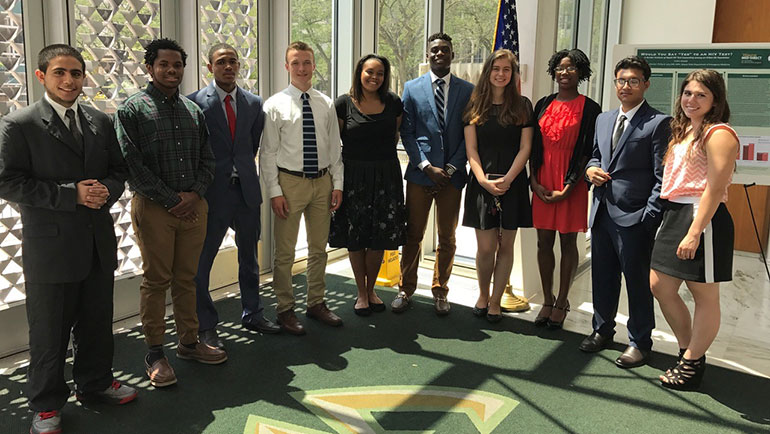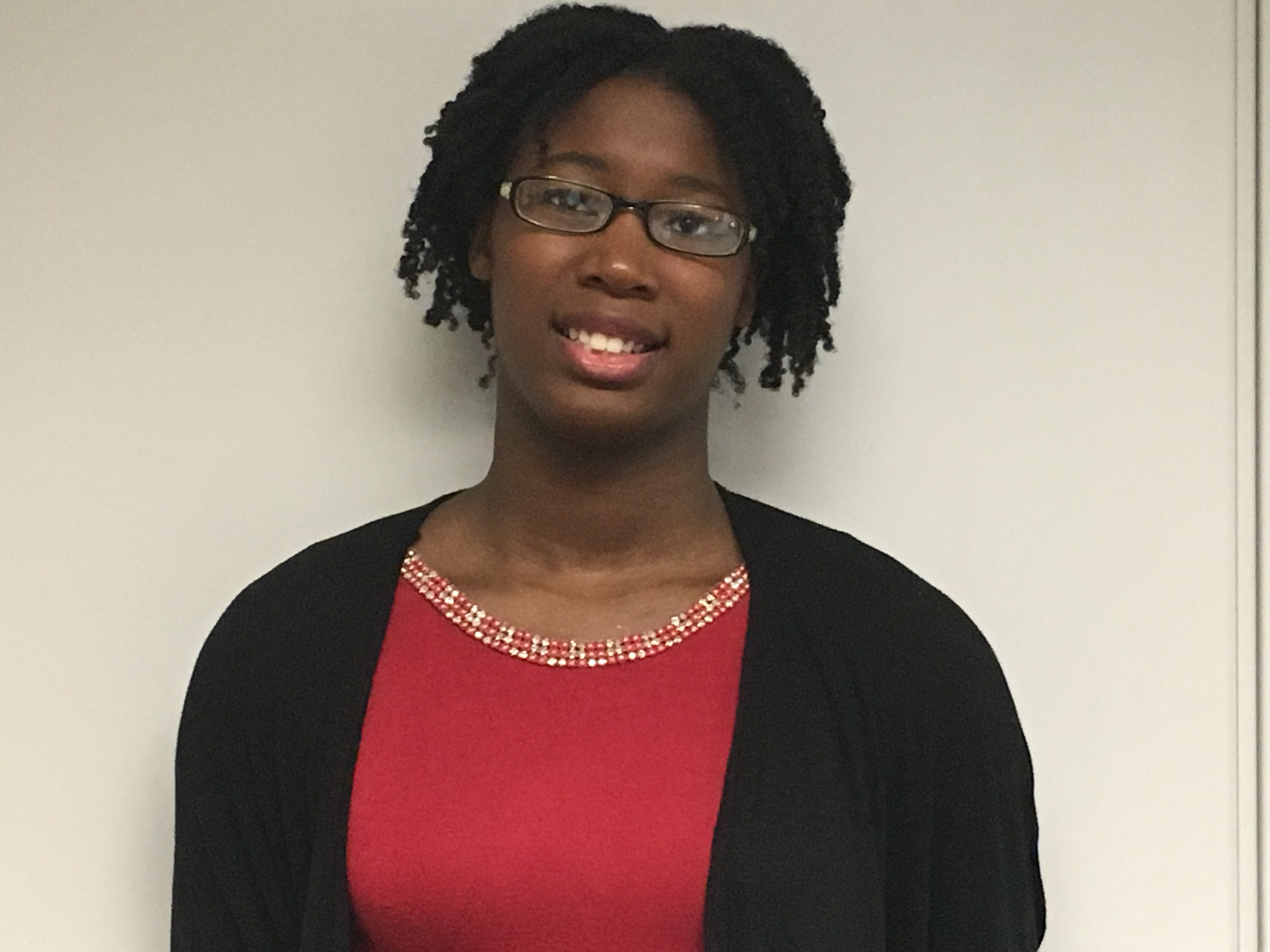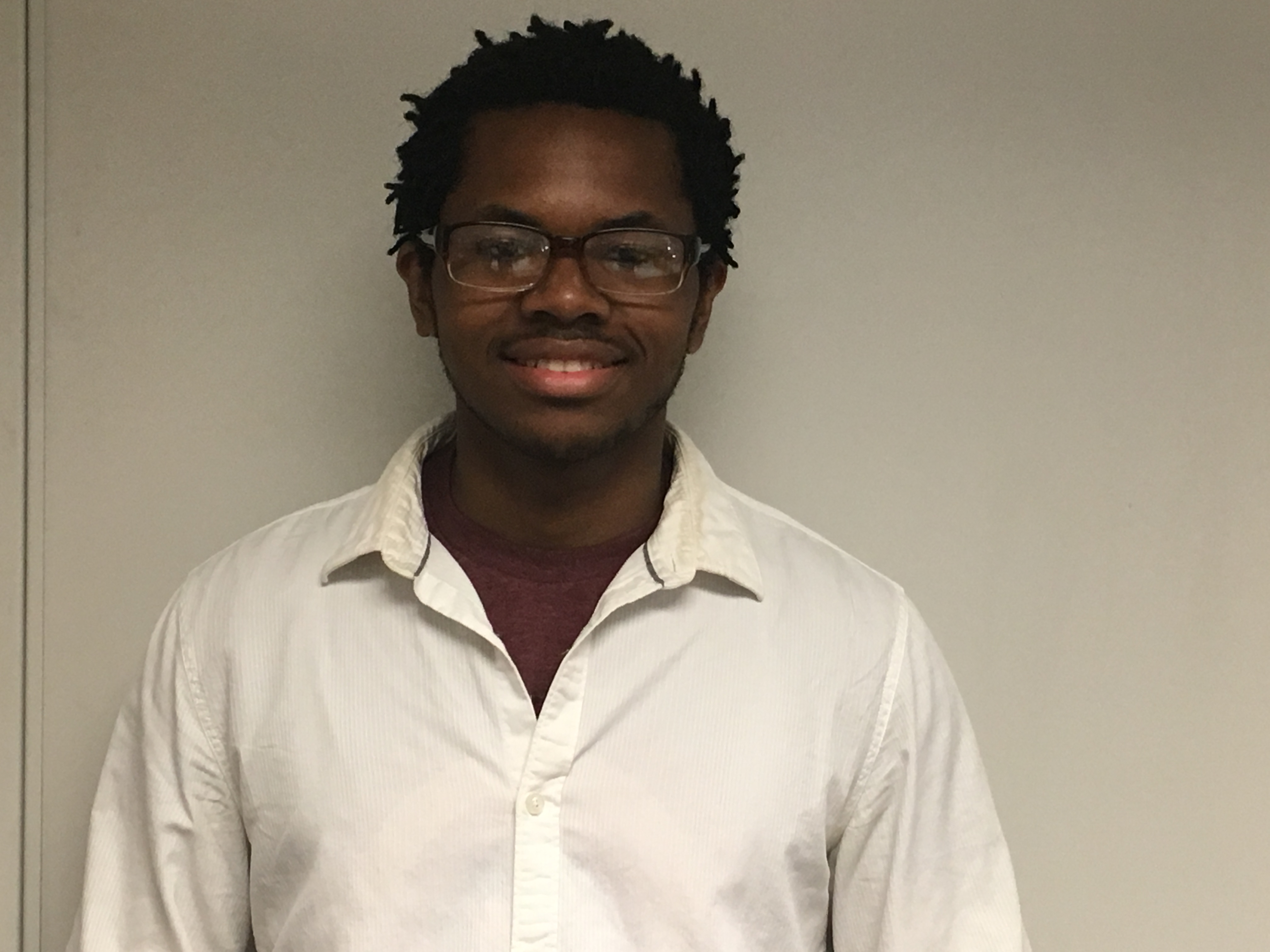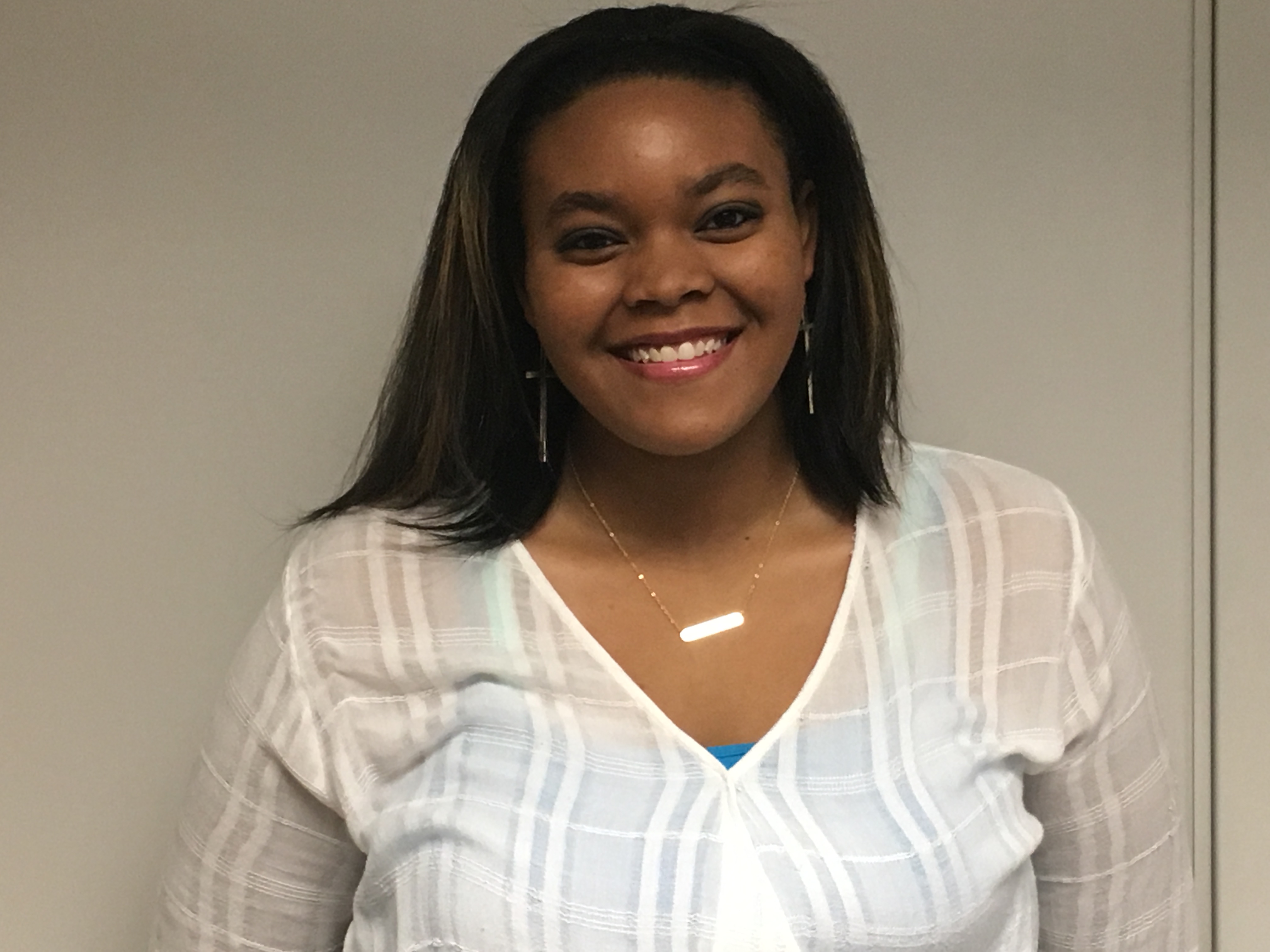
As an ambitious 12th-grader in Bowie, Md., Rosetta Irons began laying the groundwork for her entry into medical school even before she’d even started her undergraduate studies — and well before she earned her high school diploma.
“For as long as I can remember, medicine has been an interest of mine, but it was a series of academic opportunities and medically-related personal experiences that solidified my dream of practicing medicine,” Irons said. “As soon as I began applying to universities, I started searching for programs that would provide a fast

track and/or guarantee to medical school.”
It wasn’t her own searches, but rather a tip from a relative that led Irons into the program that she’d dreamed of. “Rather than discovering Wayne State and the Med-Direct program on my own, it was an aunt who informed me of the school and program at the recommendation of a friend and Wayne State University School of Medicine alumna.
“The school’s location in the city of Detroit and its subsequent outreach and volunteer activities made it the perfect place for me to gain knowledge and experience. And the Wayne Med-Direct program did nothing but aid me in my academic goals and my growth as a person during my first four years in the program.”
And now, this month, her dream takes a critical step toward becoming reality.
Irons, along with eight other students who make up the first cohort to participate in Wayne Med-Direct, which focuses on placing highly-talented, traditionally underrepresented undergraduate students at Wayne State on the academic fast track to the WSU School of Medicine, received their bachelor’s degrees in the spring and now begin their first year of medical school. The students begin classes this month.
Collectively, their success marks a milestone for the high-profile program, which WSU President M. Roy Wilson announced in 2015 and which has received significant support from noted alumni such as entrepreneur and philanthropist Mort Harris. Not only does the cohort’s passage from undergraduate programs into medical school affirm Wilson’s initial confidence in the program’s mission to foster greater diversity within the medical ranks, it also suggests bright prospects for the program moving forward.
“Wayne Med-Direct is geared to recruit the very best and brightest students who have a passion for addressing health disparities,” Wilson said. “As the current pandemic has revealed, health disparities can produce devastatingly disproportionate outcomes, which is why it is critical that Wayne State University continues to produce physicians committed to ameliorating inequities in access and outcomes. To see our first cohort advance to medical school marks a proud occasion for Wayne State and a hopeful moment for medicine.”

Christofer Smith, another of the nine students in the advancing cohort, said he’s deciding on his area of specialization, but agreed with Wilson that, whatever his choice, Wayne Med-Direct’s commitment to diversity and to training students to address disparities in medicine is critical.
“Of course I’m biased, but I love Med-Direct and its goal to take people who want to become doctors and educate them on the needs of the community,” said Smith, of Detroit. “Diversity in medicine is necessary to better serve patients. It’s important to have doctors who look like and understand the culture of their patients to make them more comfortable and serve them better.”
The inaugural cohort began its journey in the summer of 2016, mere months after Wilson announced the creation of the program. With the WSU Graduate School providing additional guidance, students accepted into the program were thrust immediately into a stream of seminars, workshops, and hands-on research and clinical training in the School of Medicine. Even for these academic all-stars (the original students were required to have a minimum 3.5 grade-point average and at least a 1340 SAT or 30 ACT score when accepted), the demands of the program felt intense.
“One of the biggest challenges I endured during undergrad was time management,” conceded Rebecca Schultz, a native of Marine City, Mich. “Learning to balance studying, work and classes as well as volunteering, research, other extracurriculars and fun with friends was a constant challenge through undergrad. It seemed as if each time I got it figured out, something else was added to the mix. I had to learn to prioritize and be flexible to ensure that everything got done.”
But along with the challenges came prodigious support. Students in the program receive free Medical College Admission Test preparation, travel to relevant conferences and symposia, and gain access to cutting-edge research facilities such as the $93 million Integrative Biosciences Center, otherwise known as IBio.
Harris gave the program a major boost three years ago when he agreed to commit $10 million to Med-Direct. His gift was used to create a support fund for the students, who have since been dubbed Mort Harris Med-Direct Scholars in his honor. Gifts supporting the highly competitive B.S./B.A.-to-M.D. program have supported unique opportunities for advanced study and hands-on training.
Harris remains an enthusiastic supporter of the program.
“Wayne State creates opportunity and makes our entire community stronger,” Harris said when he announced his gift. “I am happy to support this program that will produce medical leaders and improve health for so many people in urban areas like Detroit, and beyond.”
The investment in the Med-Direct program is yielding dividends. All but one of the students in the original cohort have made it to medical school. Moreover, not only are students receiving hands-on training to complement their academic learning, they also are being exposed to life-changing experiences beyond the lab and classroom.
Smith traveled to the Middle East as part of his studies. Last year, Med-Direct students traveled as a group to China to learn about the inner-workings of China’s hospital systems.
Closer to home, the students have also added community service to their efforts. Cedric Mutebi earned accolades for helping to create and lead the Hands-Only CPR Challenge, a friendly competition that encouraged students at WSU and other Michigan universities to see how many people they could train in CPR techniques.

And, even as they were traveling abroad, Smith and Jasmine Coles found time to head up a series of events designed to bring greater awareness to breast cancer.
Coles also served four years on the WSU Student Senate and founded Rising Black Medical Leaders, a networking group for Black medical pre-professionals that also prepares Detroit public school students for college. Mutebi was one of the founders of The Brotherhood, a student support group for Black males on the WSU campus.
But for all their success as undergraduates, students in the Med-Direct inaugural cohort harbor no illusions about the challenges facing them as they head into medical school.
“My biggest challenge in medical school will be learning how to learn,” said Coles, who hopes to become a pediatric surgeon. “With so much new information in a different style than what I am used to, I will need time to adjust to the new rigors that medical school has to offer.”
Irons, the young woman who made her way into the program from Maryland, agreed that many tests remain for the cohort before the students reach their goals, but, like her peers, she feels ready.
“The biggest personal challenge of undergrad was learning how to balance striving for academic excellence while still making time for myself and my relationships,” she said. “I know that this same challenge will again present itself in medical school with even more intensity, and so I’m thankful for the experience I’ve gained. My family — and the family I gained in the Med-Direct program — are just the support system I need to help me overcome that challenge. The Wayne Med-Direct program is truly a once-in-a-lifetime opportunity.”